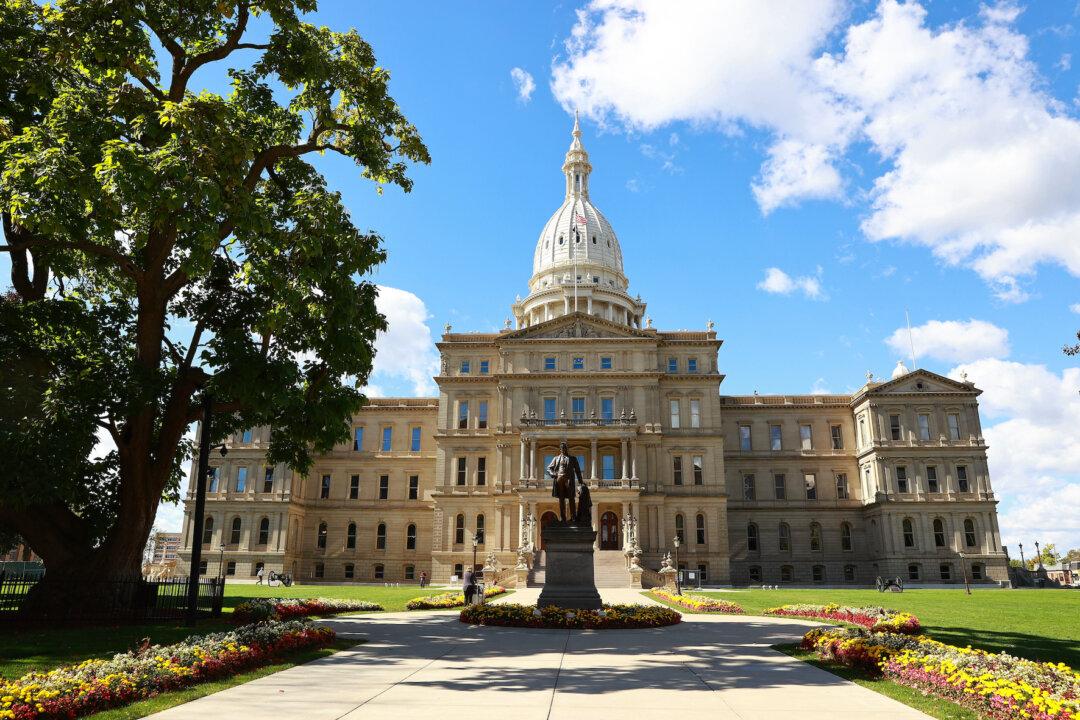Michigan state House Republicans have put forward a pair of bills designed to return zoning and land use decisions about proposed green energy projects to local communities.
GOP Lawmakers Advance Bills to Restore Local Zoning Control Over Green Energy Projects
Michigan Republicans say they want to put land use and zoning decisions for wind and solar projects back in the hands of localities.

The state Capitol in Lansing, Mich., on Oct. 8, 2020. Rey Del Rio/Getty Images




